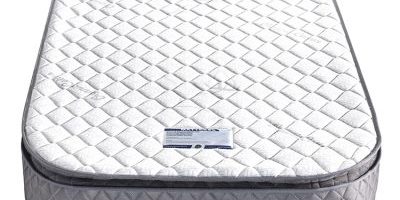For individuals with allergies or asthma, a suitable mattress can make a significant difference in sleep quality and overall health. In this article, we’ll explore how to choose the right spring mattress that helps alleviate allergy and asthma symptoms.
Hypoallergenic Materials
We’ll discuss how some spring mattresses are made with hypoallergenic materials, such as natural fibers and low-VOC (volatile organic compound) foams. These materials can help reduce allergen buildup in the mattress.
Allergen Resistance
Certain spring mattresses are designed to resist common allergens like dust mites and mold. We’ll explain how these mattresses can create a healthier sleeping environment.
Cleaning and Maintenance
Proper cleaning and maintenance are crucial for allergy and asthma sufferers. We’ll offer advice on how to keep your spring mattress clean and allergen-free.
Breathability and Air Quality
Improved breathability in spring mattresses can help maintain better indoor air quality, benefiting individuals with respiratory conditions. We’ll explore how good airflow can contribute to a healthier sleep environment.
Certifications and Standards
Look for mattresses with relevant certifications, such as CertiPUR-US or OEKO-TEX, which ensure the absence of harmful chemicals. We’ll discuss the importance of these certifications for allergy and asthma sufferers.
Conclusion
Selecting the right spring mattress can significantly impact your sleep quality if you have allergies or asthma. By considering factors like hypoallergenic materials, allergen resistance, and certifications, you can make an informed choice for better sleep and respiratory health.






